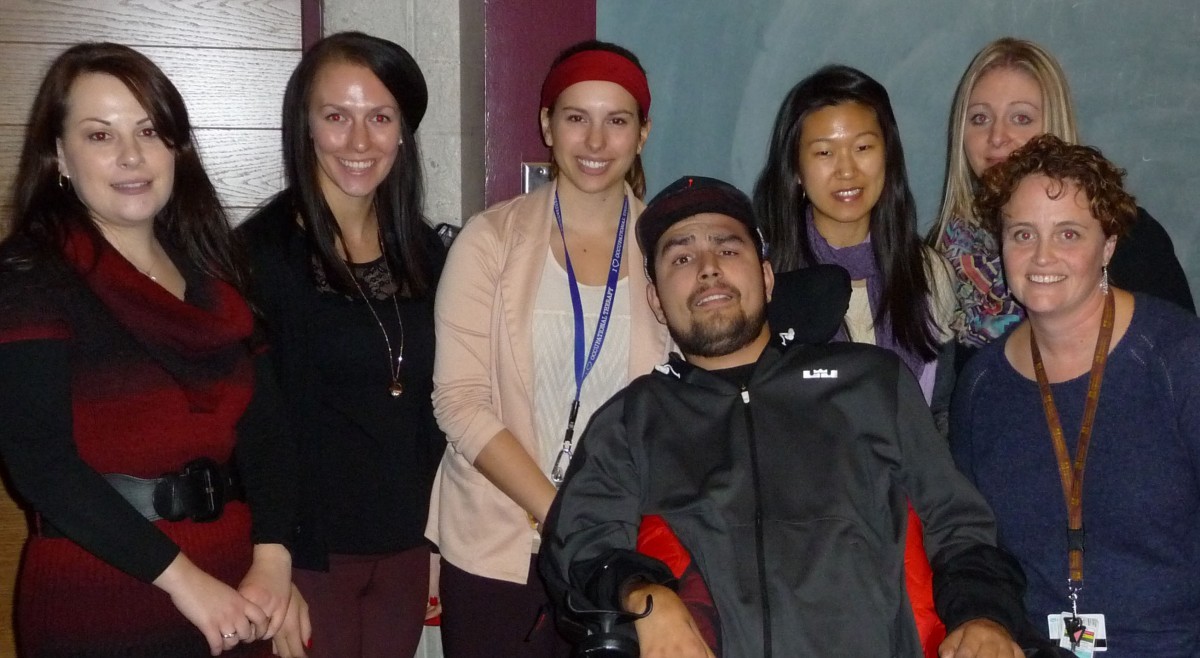
Second-year Occupational students Elina Peer, Tasha Miedzielski, Amanda Deslauriers, Eunice Sone and Shauna Gesell with Ian Mckinney and Dr. Carolyn Snider
Breaking the cycle of violence
Presentation by Occupational Therapy students focuses on gang violence as a health issue
You don’t have to look far to see how violence impacts members of our community, particularly our young people. Winnipeg has the highest homicide rate of all major Canadian cities and each year over 1,000 youth visit the Health Sciences Centre for injuries related to violence. Even more sobering is the fact that 20 per cent of those young people will return to HSC with another injury within the next year. Breaking the Cycle of Violence, a presentation staged by a group of second-year College of Rehabilitation Sciences Occupational Therapy students, shone a light on how youth and gang violence has an impact on the health profession and the steps that can be taken to curb this violent trend. Held over lunch on November 4 in the Basic Medical Sciences building on the Bannatyne campus, the presentation consisted of remarks from a health-care professional and a former gang member, both of whom are working to end the cycle of youth violence. Dr. Carolyn Snider, an emergency physician at Health Sciences Centre and U of M assistant professor, presented on the Emergency Department Violence Intervention Program. This initiative, led by Snider, is designed to help youth break the cycle of violence, and provide concrete steps that can be taken to end this cycle. Ian Mckinney, a former gang member who was paralyzed after being shot close to a year ago, shared his experiences as a gang member and how easy it is for a young person without family or community support to find themselves involved in gang life. Mckinney urged all health-care workers to not prejudge young people with gang ties who find themselves seeking medical treatment. “You’ve got to want to be there,” Mckinney said. “You’ve got to show the person that you care. It’s good to joke and have fun, make them laugh if they’re having a bad day.” Amanda Deslauriers, a second-year Occupational Therapy student in the Faculty of Health Sciences whose group created the Breaking the Cycle of Violence event, expressed her appreciation for Mckinney’s perspective. “We identified that we wouldn’t know what to do if we met a young person who was in a gang,” Deslauriers said. “What we’ve learned is that the issues of gangs and violence for at risk youth has been such a social issue. But as OTs we have a good chance of meeting these people as our clients and showing how can we be involved in that cycle of helping them get out of the reasons they’re coming to the hospital.”






